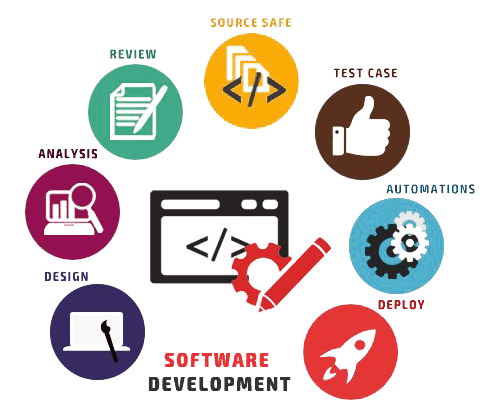
How to Choose A Web Development Company? An Experts’ Guide to Choosing The Right Development Company For You
In today’s digital landscape, a robust online presence isn’t just advantageous; it’s a business imperative. Your website acts as the virtual gateway for potential customers, serving as a crucial element of your brand identity and revenue generation. The way it’s constructed and designed plays a pivotal role in the impression it leaves. However, crafting a website that excels both aesthetically and functionally often requires the expertise of a top-tier web development company.
How to Choose the Best Web Development Company?
Selecting the right web development company is a journey that involves several crucial steps. From defining your project goals to assessing a potential partner’s expertise, communication skills, and technology capabilities, all while staying within your budget, each step plays a vital role in finding the ideal web development partner for your business needs. In this comprehensive guide, we will walk you through each of these essential stages to ensure you make an informed decision.
Clarify Your Web Development Goals
Determine Your Goals
Start by defining your website’s purpose. Are you creating an e-commerce platform to sell products, showcasing a portfolio to highlight your work, providing valuable information to your audience, or pursuing other objectives? Clarifying your goals is the foundational step.
Identify Functionalities
List the specific features and functionalities you require. Consider whether your site needs a responsive design for mobile optimization, a content management system (CMS) for easy content updates, e-commerce integration for online sales, or other unique elements tailored to your industry.
Consider Future Scalability
Think about potential future expansion and updates. How adaptable should your chosen web development service company be? Envision how your website’s capabilities may need to grow, such as accommodating a larger product catalog or integrating advanced functionalities.
Find Your Potential Web Development Partners
The initial phase of your search involves comprehensive research. Look for web development companies with a proven track record and a diverse portfolio. Consider factors such as cost-effectiveness, which includes a flexible hourly scheme setup. Such arrangements can provide long-term stability compared to depending on freelancers or in-house developers who may eventually leave your company.
Evaluate Experience and Expertise
Once you’ve compiled a list of potential partners, it’s time to delve deeper into their capabilities. Assess the company’s experience, considering not just the number of years but also their breadth of experience across different industries. The more industries a firm works with, the better equipped they are to understand and meet your specific needs. Additionally, if the company possesses marketing experience, it’s a significant added benefit. Web development and marketing services often go hand in hand, and having a partner who comprehends both aspects can greatly enhance your project’s success.
Review Previous Work
Explore Their Portfolio
Dive deep into their portfolio to understand their design style, project diversity, and creative approach. Consider how well their past work aligns with your vision for your website.
Look into Case Studies
Look for case studies that showcase how they’ve solved specific challenges for clients. These real-world examples can provide valuable insights into their problem-solving abilities. This can give you insights into their problem-solving approach and help you determine if their past work aligns with your vision and requirements.
Look at What Others Say
Client feedback is a powerful indicator of a web development company’s competence. In addition to reviewing case studies on the company’s website, check third-party platforms for more insights. Reach out to the company’s previous clients, if possible, to get firsthand feedback on their experiences. Inquire about their overall satisfaction levels and whether there were any recurring issues during their collaboration. You can seek recommendations from online forums that are known for their honest reviews and ratings system. These firsthand experiences can help you identify your top candidates. Here are some recommended examples below:
- Clutch
- GoodFirms
- Guru
- DesignRush
These platforms usually hold many profiles and businesses. However, there are certain things you can look for to differentiate the best potential partner. On Clutch, for example, you want to try to find a verified business that has a high overall review rating. Guru, on the other hand, provides an extensive feedback section that helps you understand if this company meets your needs.
Prioritize Clear Communication
Effective communication is the bedrock of any successful partnership, especially in the realm of web development services, where technical concepts can be complex. Strong communication is essential for ensuring a smooth collaboration, and you can often gauge this from the very first steps of collaboration, such as the consultation or when requesting a quote. Evaluate the company’s communication skills and responsiveness during these initial interactions.
Consider if they are responsive and available when you need them. Assess whether their proposal serves your needs effectively and if they demonstrate a clear understanding of your goals. These factors are crucial for ensuring a smooth partnership from the outset.
Assess Technology Tools & Team Structure
In the ever-evolving world of bespoke web development, staying up to date with the latest technologies and trends is imperative. Inquire about the technologies, programming languages, and frameworks the company uses. Are they proficient in the tools required for your project? Also, assess whether they can accommodate any specific technology preferences you have, such as ReactJS, Python, Ruby, or PHP. A web development partner attuned to your technological vision guarantees a top-tier web development service.
Furthermore, it’s essential to consider the composition of the development team. Look for a company that has the following specialists:
- Front-End Developers: They are responsible for your website’s look, feel, and interactivity, making it visually appealing and user-friendly.
- Back-End Developers: They write server-side code to ensure seamless data flow, ensuring your web solution’s functionality and performance.
- QA Testers and Engineers: Maintain error-free, optimal functionality through meticulous testing and bug rectification.
- UI and UX Designers: Enhance user perception and interaction by creating intuitive, visually appealing designs.
- Digital Marketers: Additionally, digital marketers can help you boost your online visibility and success through effective engagement and growth strategies.
Understand Project Management and Timeline
Understanding how a web development company manages projects and timelines is essential for project success. Clarify the estimated project duration and milestones. A transparent project management process ensures that you’re aware of the project’s progress at all times. Ensure that the company has a well-defined plan for development, testing, and deployment. This structured approach reduces the likelihood of unexpected delays.
Consider Budget and Quality
While budget considerations are important, they shouldn’t be the sole determining factor. Request detailed quotes from your shortlisted companies and compare pricing structures. Ensure they align with your budget constraints. Scopic, for instance, is known for offering cost-effective services while maintaining high quality. They provide transparent budget breakdowns and clear timelines, essential in the initial phases of your project.
Evaluate Support and Maintenance
Websites require ongoing support and maintenance. Inquire about post-launch support, updates, and maintenance services. A reliable web development services partner should help beyond the project’s completion. Understand how they handle potential issues and their approach to ongoing technical support.
Legal and Contractual Considerations
The final step involves navigating the legal and contractual aspects of your partnership. Review the contract thoroughly, paying close attention to payment terms and intellectual property rights. Ensure there’s a clear agreement on ownership of the final product. In some cases, it might be prudent to seek legal advice before finalizing the contract to safeguard your interests.
Conclusion
Selecting the right web development partner is a pivotal decision that significantly impacts your online success. Your website is more than just a digital storefront; it’s a reflection of your brand, a platform for engaging with your audience, and a key driver of your business goals. By following these comprehensive steps and conducting thorough research, you can find a partner who not only shares your vision and goals but also possesses the technical prowess to bring your digital dreams to life. Don’t underestimate the value of this decision in choosing the right web development service.
Your online presence is a vital asset, and choosing the right partner is an investment in its future success. At Essence Software, we pride ourselves on offering personalized consultations and tailored quotes to meet your web development needs. Our experienced team is dedicated to delivering high-quality, scalable, and innovative web solutions that align with your business objectives. Contact us today to learn how we can help you achieve your digital goals and drive your business forward.
FAQ
Consider their experience, expertise, portfolio, client feedback, communication skills, technology stack, project management process, budget, and post-launch support.
Review their portfolio, case studies, and client testimonials. Check their technical skills and industry experience.
Clear communication ensures alignment, prevents misunderstandings, and fosters collaboration, leading to smoother project execution.
Look for proficiency in HTML, CSS, JavaScript, ReactJS, Angular, Python, Ruby, PHP, and relevant CMS platforms like WordPress.
Ensure they offer regular updates, bug fixes, and technical assistance, with a clear process for handling potential issues.










